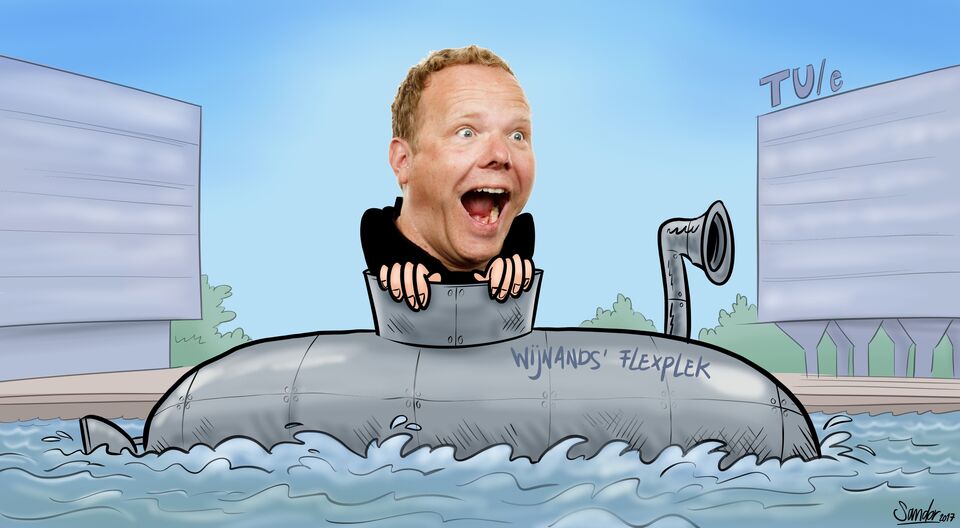Brainmatters | Hot Bunking
My father used to work in an open office before the term existed. Some sixty years ago he was a young corporal and torpedo maker, active in the submarine service of the Royal Netherlands Navy.
He loved telling stories about that at the dining table. About exercises in Scottish waters, or visits to the port of Willemstad, in tropical Curacao. About the miserable food on board (he always brought his own store of eggs and lemons), the friendships, and the disturbances in cafés on shore.
What made a special impression on me, even as a child, was the absolute shortage of space and privacy on board a submarine. Except for one small drawer there was no place for personal belongings. In order to save space, several men would share the same bed in turn - the so-called ‘hot bunking’. Nowadays this is known as flexspace.
In many respects the open office concept that is being introduced at TU/e here and there looks like the antithesis of the submarine. Not claustrophobic and dark, but spacious, and with a great deal of light and air. Attractive to be shown in vision documents, brochures and PowerPoint presentations, accompanied by a glowing account of the New Ways of Working. And under the pretext of better cooperation, one may save many a square meter indeed.
What a pity, then, that we are all human after all - in many cases looking for a place to call our own, for privacy, for working without any disturbance and with concentration. Put knowledge workers in cramped quarters, research has shown, and absenteeism rises while labor productivity drops. And contrary to the idea that proximity promotes communication, there is actually less being shared in an open work area - for fear of disturbing each other, or of sharing sensitive information (too) broadly. The risk of distraction is many times greater in open work areas, and it may occasionally take some fifteen to twenty minutes to be fully focused again after having become distracted. When we get the feeling that we need to sit in the library or at home to really get some work done, that is a sure sign that there is something wrong about the workplace.
Advice for our shining glass palaces
My father was very clear about it: sailing in submarines is not everybody’s cup of tea. You need to have a thick skin, be tolerant, and stick up for yourself. A sense of humor and the ability to put things into perspective do not go amiss either. And discipline, day in day out. And although at TU/e we are not saddled with unwashed colleagues in hot, dark, noisy quarters reeking of diesel for weeks on end, 24/7, his advice is also applicable wonderfully well to the New Ways of Working in our shiny glass palaces.
Wijnand IJsselsteijn | Professor of Cognition and Affect in Human-Technology Interaction


Discussion